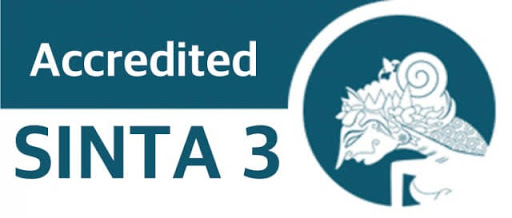Perception of car workshop partners towards the vocational students' internship performance in Cilacap
DOI:
https://doi.org/10.12928/ijei.v1i1.2117Keywords:
industry, internship, perception, students' performanceAbstract
This research aims to determine the perceptions of industrial partners of the car workshop on the performance of vocational high school students in Cilacap after conducting internship program. The type of this research is descriptive qualitative. The data collection techniques used questionnaires. To test the validity and research data, we used triangulation of data that is how researchers test the validity of data by collecting similar data but by using different data collection techniques. The data to be concluded is about the performance of internship students. The performance of internship students is concluded with different methods, namely the questionnaire method and the interview method.References
Hesti, D. M. (2015). Persepsi Dunia Usaha Terhadap Unjuk Kerja Siswa SMK Negeri 1 KENDAL Jurusan Busana Butik pada Praktek Kerja Industri (Prakerin). Doctoral Dissertation. Semarang: Universitas Negeri Semarang.
Kemdikbud. (2003). Undang-Undang Sistem Pendidikan Nasional. Jakarta: Kementerian Pendidikan dan Kebudayaan.
Pradana, K. G. (2012). Hubungan antara persepsi siswa tentang peran DUDI dalam praktik kerja industri dengan sikap kewirausahaan siswa kelas XII Teknik Permesinan SMK Negeri 6 Malang Tahun 2011.
Rahmayanti, A., Wibawa, B., & Khaerudin, K. (2018). Peningkatkan Hasil Belajar Matematika dan Kemampuan Pemecahan Masalah Siswa SMA Melalui Pendekatan Saintifik. JTP-Jurnal Teknologi Pendidikan, 20(3), 181-198.
Sidik, R. (2019). Analisis Layanan Industri Pada Tempat Prakerin Siswa Terhadap Penguasaan Kompetensi Teknik Kendaraan Ringan Siswa SMK N 5 Surakarta. Doctoral Dissertation. Surakarta: Universitas Sebelas Maret.
Sugiyono. (2010). Metode Penelitian Pendidikan Pendekatan Kuantitatif, Kualitatif dan R&D. Bandung: Alfabeta.
Zulmi, A. E. (2015). Aplikasi Penilaian Kinerja Karyawan Menggunakan Metode Smart Berbasis Web Studi Kasus pada PT Prima Sarana Ekspress. Doctoral Dissertation. Universitas Darma Persada.
Kemdikbud. (2003). Undang-Undang Sistem Pendidikan Nasional. Jakarta: Kementerian Pendidikan dan Kebudayaan.
Pradana, K. G. (2012). Hubungan antara persepsi siswa tentang peran DUDI dalam praktik kerja industri dengan sikap kewirausahaan siswa kelas XII Teknik Permesinan SMK Negeri 6 Malang Tahun 2011.
Rahmayanti, A., Wibawa, B., & Khaerudin, K. (2018). Peningkatkan Hasil Belajar Matematika dan Kemampuan Pemecahan Masalah Siswa SMA Melalui Pendekatan Saintifik. JTP-Jurnal Teknologi Pendidikan, 20(3), 181-198.
Sidik, R. (2019). Analisis Layanan Industri Pada Tempat Prakerin Siswa Terhadap Penguasaan Kompetensi Teknik Kendaraan Ringan Siswa SMK N 5 Surakarta. Doctoral Dissertation. Surakarta: Universitas Sebelas Maret.
Sugiyono. (2010). Metode Penelitian Pendidikan Pendekatan Kuantitatif, Kualitatif dan R&D. Bandung: Alfabeta.
Zulmi, A. E. (2015). Aplikasi Penilaian Kinerja Karyawan Menggunakan Metode Smart Berbasis Web Studi Kasus pada PT Prima Sarana Ekspress. Doctoral Dissertation. Universitas Darma Persada.
Downloads
Published
2021-03-19
How to Cite
Widiastuti, E. R., Santosa, B., & Sayuti, M. (2021). Perception of car workshop partners towards the vocational students’ internship performance in Cilacap. International Journal on Education Insight, 1(2), 61–68. https://doi.org/10.12928/ijei.v1i1.2117
Issue
Section
Articles
License
Copyright (c) 2020 Eka Rini Widiastuti; Budi Santosa; Muhammad Sayuti

This work is licensed under a Creative Commons Attribution-ShareAlike 4.0 International License.
Authors who publish with this journal agree to the following terms:
- Authors retain copyright with the work simultaneously licensed under a Creative Commons Attribution License that allows others to share the work with an acknowledgement of the work's authorship and initial publication in this journal.
- Authors are able to enter into separate, additional contractual arrangements for the non-exclusive distribution of the journal's published version of the work (e.g., post it to an institutional repository or publish it in a book), with an acknowledgement of its initial publication in this journal.
- Authors are permitted and encouraged to post their work online (e.g., in institutional repositories or on their website) prior to and during the submission process, as it can lead to productive exchanges, as well as earlier and greater citation of published work (See The Effect of Open Access).




